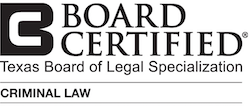Dallas County DWI
Dallas County is a very unique place in terms of how to approach the best possible defense. Many cases flow through Dallas County, and Carl and his team have secured acquittals ("Not Guilty" verdicts) and dismissals based on the failure of the officer to show up for court.
If you were arrested for a DWI in Dallas County, knowing the information needed for your DWI case will better assist you while you proceed through the court system. It is important; you are well represented by an experienced, skilled, and trained Dallas County DWI Defense Attorney who can help navigate you throughout the system.
When released from Lew Sterrett County Jail, you will get a notice to appear in court approximately three weeks from the date of your arrest. This letter usually will instruct you to go to Dallas County court on the date listed to check the bulletin board to see if your case has been filed yet.
Dallas County DWI Case Process
With most Dallas County cases, the court case will not yet be filed. In some instances, they actually are filed. If you, or your attorney, do not appear for a case that has been filed, a bond forfeiture could result (and a warrant issued for your arrest). If the case is NOT filed, you will then be instructed by either the court coordinator, or by an individual at the clerk's office, to reappear at court to check again to find out if your case has been filed. When your case is filed and shown on the court bulletin board, you will find out which court your case has been referred to. To read more about the overall process with DWI charges in Texas, please read more HERE.
After your name appears on the bulletin board, you will be directed to the court where your case was filed. You will go to the room and speak with the court coordinator. This person is in charge of managing the court's docket (or calendar), and it imperative that you speak with them (especially if you do not have counsel). You will be asked if you have decided on who will represent you in court as your Criminal Defense Attorney, and if not, you will be given another date to find one to appear on your behalf. If you are found to be indigent, the court may give you a public defender. To do this, you will be required to fill out an application to verify that you are indigent. To be eligible as indigent, you must satisfy certain criteria. If you are granted a the service of a public defender, you will then wait until the attorney has an opportunity to meet with you. You need to be prepared for a long wait as they do have many clients they represent.
If you decide to hire your own Dallas County DWI Defense Attorney, you will not have to go to court at all, in most cases, unless there is a dispositive setting (which would include a plea, a motion to suppress setting, or a Judge or Jury Trial). Your attorney will appear for you on your behalf and will begin the investigation of your DWI case. *It should be strongly noted that a you WILL NOT have to appear in Dallas County, in some instances, for many months, and in some cases even years. This is actually a very accomodating factor for most people, as most counties do not offer this as an option. Almost every other county in the Dallas-Fort Worth Metroplex requires the citizen accused to show up for most, if not all, court settings.
After the first court appearance, most courts will allow you to reset the case up to two more times with each being about a month apart from each other. During this period of time, your attorney will retrieve all of the necessary police reports, videotapes of your DWI arrest, and any other relevant information - such as breath and/or blood test results. They will also discuss their recommendations for the case if you decide not to contest it, which means it will be finalized by entering a plea bargain case. To read more about whether you should take a plea bargain or proceed to trial, read more HERE.
After the first two or three passes, the court will generally require the citizen accused you to appear at the next court date to reset your case. The court will want to know as soon as possible if you are going to contest your case in a formal setting, usually by setting your case for a trial by jury, or if you plan to opt instead to enter into a plea bargain agreement. Some courts run their dockets in a more loose fashion, and some are more strict in nature.
If you decide to take your case to trial, your first trial date will usually be about 2-3 months later. You must appear at all of the trial settings related to your DWI case. On the date of the trial, you need to understand that the court, generally speaking, will have at least five or more other cases set for trial on the same day. The reason is to allow people the opportunity to change their minds or if they decide to have plea bargain offers, to settle the cases, often people get scared at trial and the nature of the proceeding and opt instead to enter into a plea bargain. If there is an individual in jail who persists in wanting a trial, they are generally given preferential treatment with their settings - because the court will want to get their case disposed of it a much quicker fashion (regardless of the outcome). Judges will allow more time, often, for trial when a witness cannot be present for the state (or the defense), or if there happens to be other complications with the case.
It is important to realize that your case may be set many times, and you need to appear each time to determine if your case is selected. Carl once had to show up for 10 Jury Trial settings before the DWI case was ultimately dismissed. This was a rare circumstance, but it is not out of the realm of possibility.
If you end up being convicted either after the trial or the plea, you will probably end up being placed on probation. It can change if you have a prior criminal record, especially if you have had another DWI arrest or conviction. You will be given all the forms needed for your probation, and you will have to report to the probation department for an orientation as to how to complete the terms in a proper manner.
Finally, you can proceed to the cashier to pay all of the fines and court costs, or you can apply for a payment program to pay off the fees during your probation period.
There are some special cases where District Attorneys are allowed to offer citizens accused of Driving While Intoxicated a lesser-included offense, such as an Obstruction of a Passageway, or Reckless Driving, as an alternative. An Obstruction of a Passageway, in many circumstances, is a very good outcome as would be going to trial and winning. Then, there would be a 100% chance that you will not have a DWI conviction on your record. Regardless, it will still require probation with identical conditions, generally speaking, as a DWI conviction. Your Dallas County DWI Defense Attorney should go over all options with you if this situation arises with your case.
Dallas County Courthouse Address
The Dallas County Criminal Courthouse is at the Frank Crowley Justice Building. To read about directions as to how to get there, please read HERE. The physical address is the following:
Frank Crowley Courts Building
133 North Riverfront Boulevard
Dallas, Texas 75207
Contact Us Now
You can contact The Law Offices of Carl David Ceder at anytime for assistance at 214.702.CARL(2275) or at 469.2000.DWI(394). You can also e-mail Carl directly, at Carl@CederLaw.com; or to the office for general inquiries at Info@DFWDefenders.com. Phones should be answered 24 hours a day/7 days a week for immediate and personal assistance. E-mail messages will be responded to with 24-48 hours, depending on whether Carl is in trial.




















